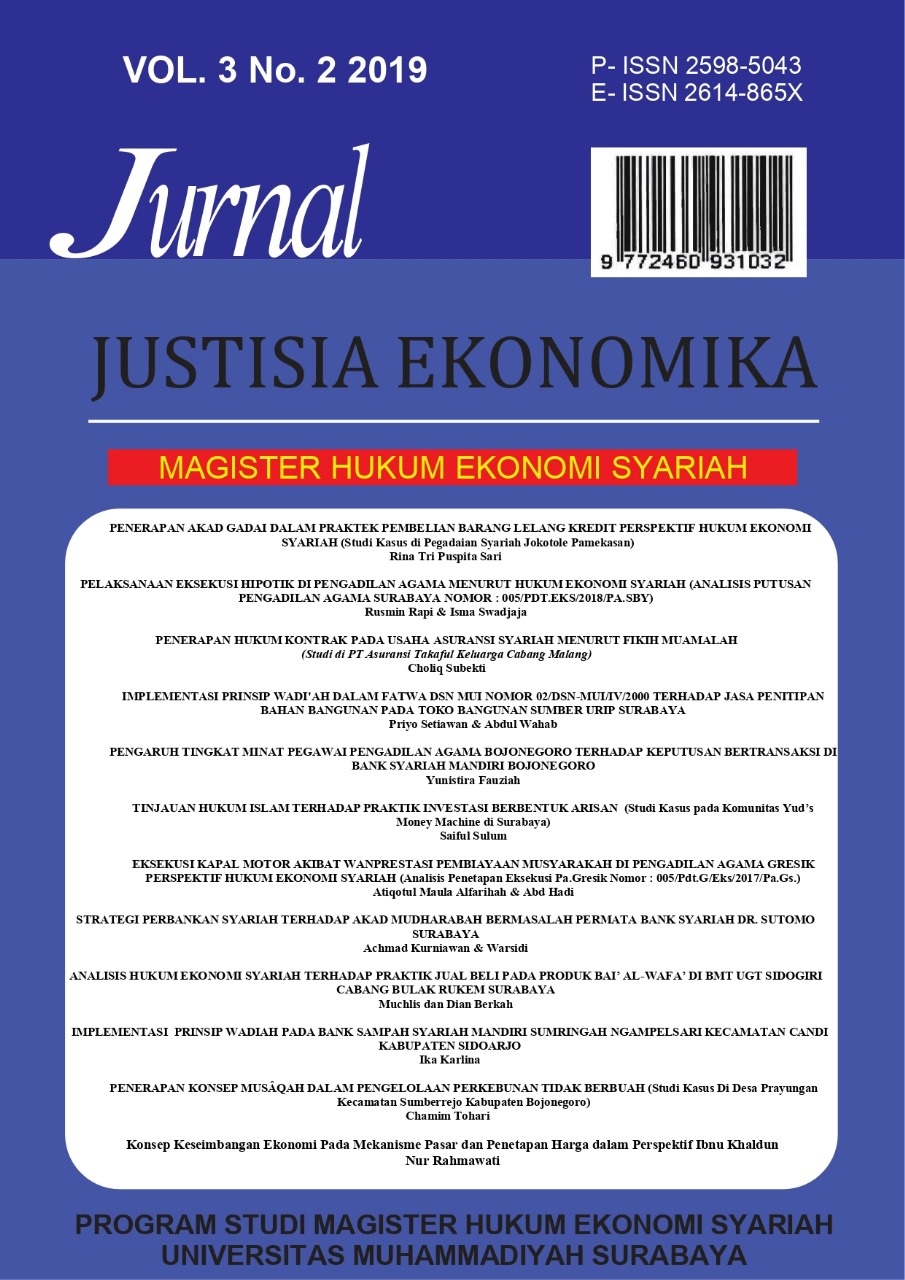PENERAPAN KONSEP MUSÂQAH DALAM PENGELOLAAN PERKEBUNAN TIDAK BERBUAH (Studi Kasus Di Desa Prayungan Kecamatan Sumberrejo Kabupaten Bojonegoro)
DOI:
https://doi.org/10.30651/justeko.v3i2.3945Abstract
Abstract
Â
This study discuss about the application of the concept of musâqah in Islamic law to the management of plantations or trees that are not fruitful. What is meant by non-fruiting tree plantations are limited by teak and bamboo trees only. The chosen research location is Prayungan Village, Sumberrejo District, Bojonegoro Regency. Because in the village the practice of plantation cooperation is still practiced by residents. The questions problems that want to discovered its answers in this study include: (1) How is the concept of musâqah in Islamic law? And (2) How does the application of the concept of musâqah in the management of plantations not bear fruit in Prayungan Village, Sumberrejo Subdistrict, Bojonegoro Regency? This research is a field research, therefore, in obtaining data the author uses interviews and direct observation methods at the research location.
The results of this study include: (1) Musâqah is a part of muamalah fiqh where in this transaction a garden owner enters into an agreement on the management of his estate with the cultivator of the garden as the person who is obliged to care for, maintain and maintain the garden to produce fruit for harvest, and yield harvest from the garden is divided between the owner and the cultivator in accordance with the conditions stated during the contract. If the garden that is kept in the form of a garden that does not bear fruit, then the provisions for the production are determined based on the contract agreed by the two parties between the owner of the garden and the manager of the garden. (2) When viewed based on Islamic law, the practice of plantation cooperation carried out by Prayungan villagers regarding the maintenance of teak trees and bamboo trees is in line with the concept of musâqah in Islamic law.
Â
Keywords: Musâqah, Teak, Bamboo, Wages, Profit Sharing.
Downloads
Published
How to Cite
Issue
Section
License
HAK CIPTA
Penulis yang mengirimkan artikel dalam jurnal Justisia Ekonomika harus memahami dan menyetujui persyaratan tentang hak cipta jurnal Justisia Ekonomika sebagai berikut:
1. Hak Cipta tulisan / artikel yang diterbitkan di jurnal Justisia Ekonomika otomatis menjadi hak pengelola jurnal atau publisher
2. Meskipun Hak Cipta atas tulisan yang telah diterbitkan di jurnal Justisia Ekonomika adalah menjadi haknya publisher, tetapi penulis masih mempunyai hak untuk : a). Penulis boleh meng-upload di repository kampus, b). Penulis boleh meng-upload di webnya sendiri, c). Penulis boleh meng-upload di google schoolar, orchid dan sinta
LISENSI
Lisensi atas tulisan / artikel yang diterbitkan di jurnal Justisia Ekonomika adalah menggunakan Creative Commons dengan atribusi CC-BY-NC 4.0






















